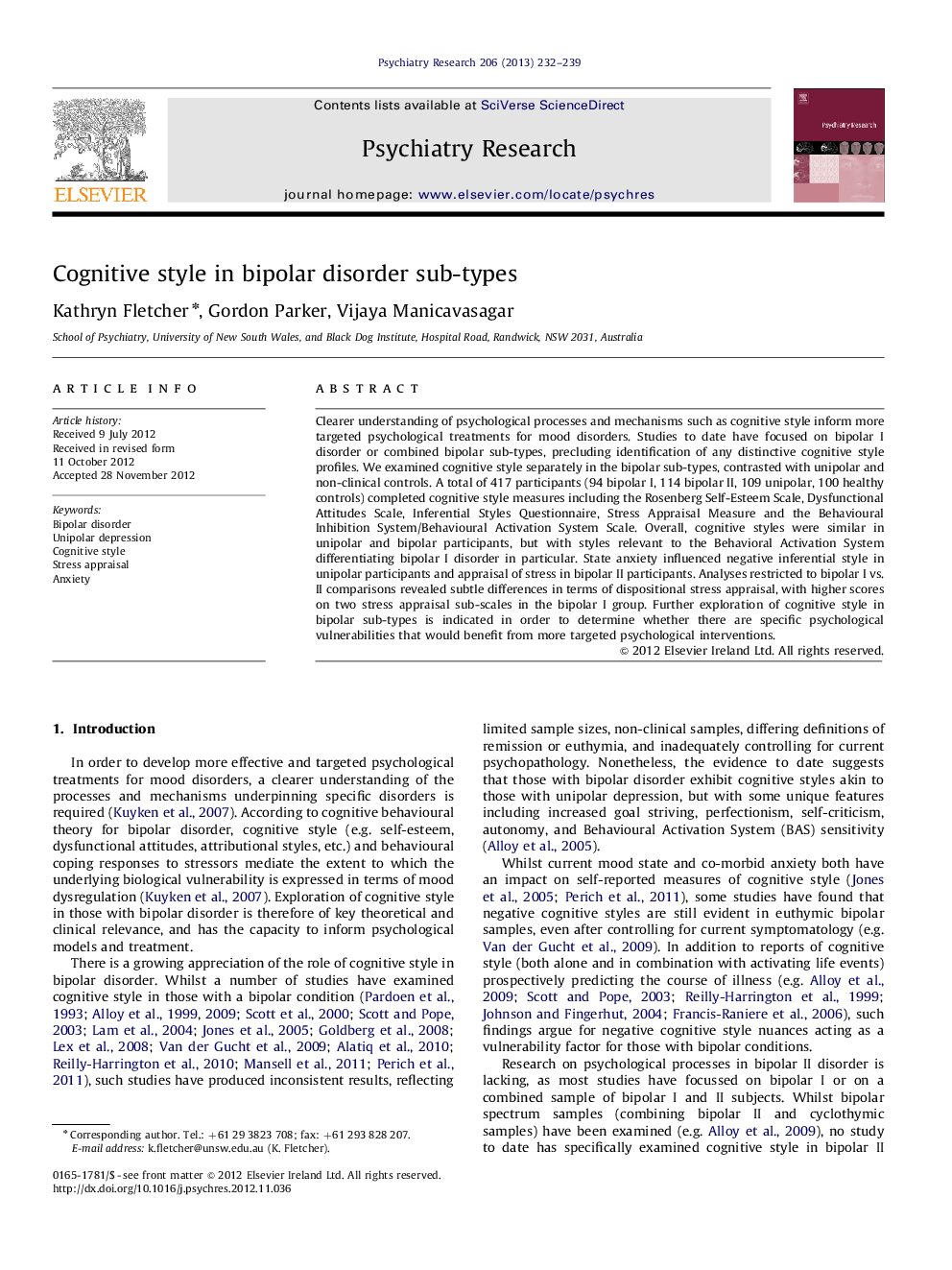| Article ID | Journal | Published Year | Pages | File Type |
|---|---|---|---|---|
| 331960 | Psychiatry Research | 2013 | 8 Pages |
Clearer understanding of psychological processes and mechanisms such as cognitive style inform more targeted psychological treatments for mood disorders. Studies to date have focused on bipolar I disorder or combined bipolar sub-types, precluding identification of any distinctive cognitive style profiles. We examined cognitive style separately in the bipolar sub-types, contrasted with unipolar and non-clinical controls. A total of 417 participants (94 bipolar I, 114 bipolar II, 109 unipolar, 100 healthy controls) completed cognitive style measures including the Rosenberg Self-Esteem Scale, Dysfunctional Attitudes Scale, Inferential Styles Questionnaire, Stress Appraisal Measure and the Behavioural Inhibition System/Behavioural Activation System Scale. Overall, cognitive styles were similar in unipolar and bipolar participants, but with styles relevant to the Behavioral Activation System differentiating bipolar I disorder in particular. State anxiety influenced negative inferential style in unipolar participants and appraisal of stress in bipolar II participants. Analyses restricted to bipolar I vs. II comparisons revealed subtle differences in terms of dispositional stress appraisal, with higher scores on two stress appraisal sub-scales in the bipolar I group. Further exploration of cognitive style in bipolar sub-types is indicated in order to determine whether there are specific psychological vulnerabilities that would benefit from more targeted psychological interventions.
